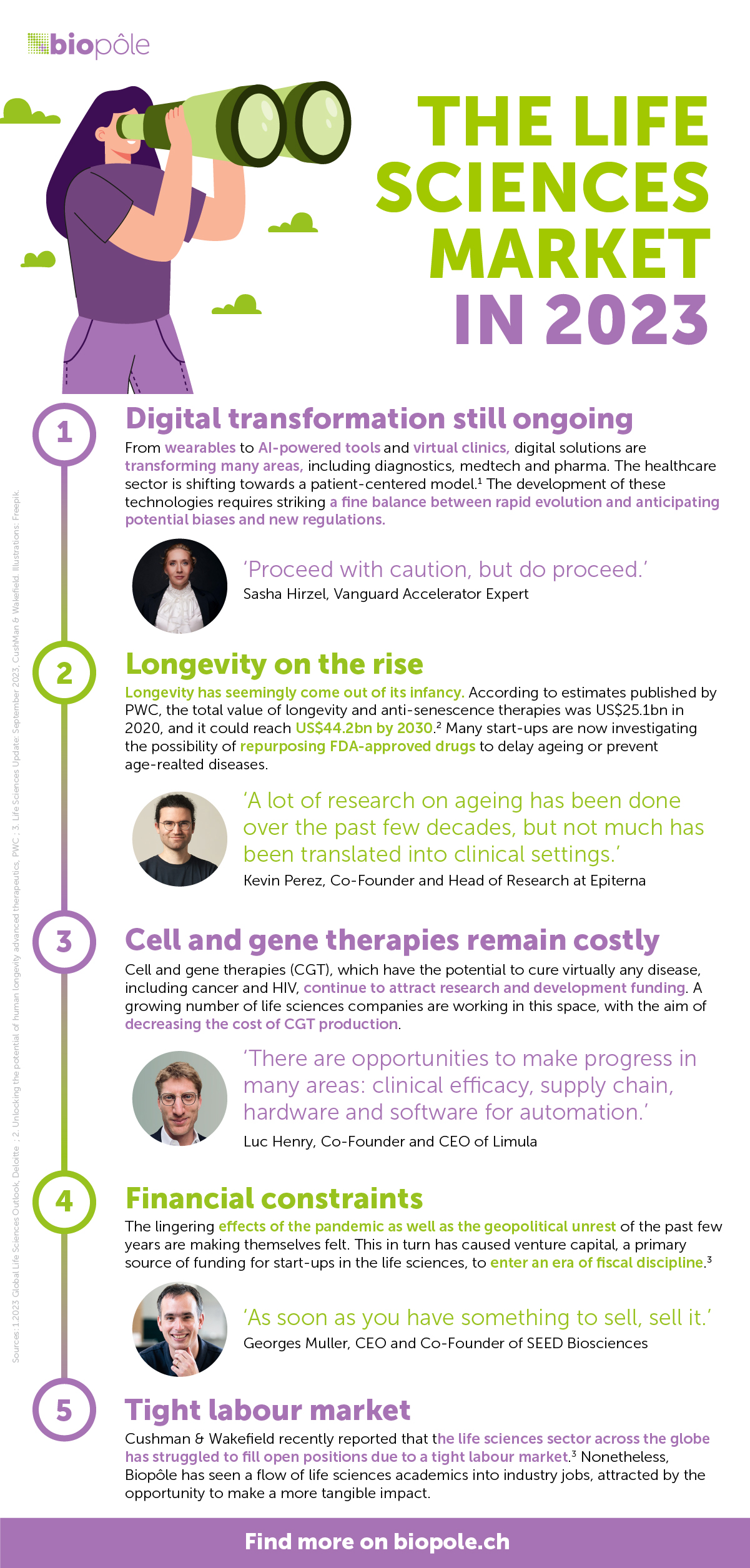This year has seen strong growth – of around US$2.83t, according to Deloitte – across the life sciences sector. Biopôle was no exception, with 24 new companies joining its community, and its top five fundraisers raising a total of CHF 220m this year. Nonetheless, the sector has also faced challenges in an ever-shifting post-COVID landscape. With this in mind, here are five trends that have dominated the past year – giving a sense of how the industry will evolve in 2024.
Life sciences companies embrace new technologies – but AI still has a way to go
As we know all too well, the COVID-19 pandemic had a profound impact on how we interacted with the world, forcing us to adapt to remote working and social distancing. And even now that most of us have returned to our offices and labs, we have incorporated these experiences into our ‘new normal’.
There are benefits to be derived from this for companies in areas like pharma, medtech and biotech. As a recent report from Deloitte pointed out, three quarters of people around the world now have experience with at-home tests. At same time, we have seen growing demand for and uptake of wearable activity trackers, as well as smartphone-enabled diagnostic tools, leading to the development of virtual clinics as the healthcare sector shifts towards a technology-enabled, patient-centred model of care.
Consulto, a recent participant in Biopôle’s Vanguard Accelerator programme, is developing a virtual clinic, which it refined in collaboration with the programme’s panel of expert mentors. Thomas Hügle, Head of Rheumatology at Lausanne University Hospital (CHUV), is one such mentor, and he expressed great excitement at the prospect of this new healthcare frontier. In his opinion, ‘virtual clinics could be a game changer when it comes to a multi-disciplinary approach in the patient journey’, easing pressure on clinicians and helping them to coordinate provision of care across different disciplines and locations.

